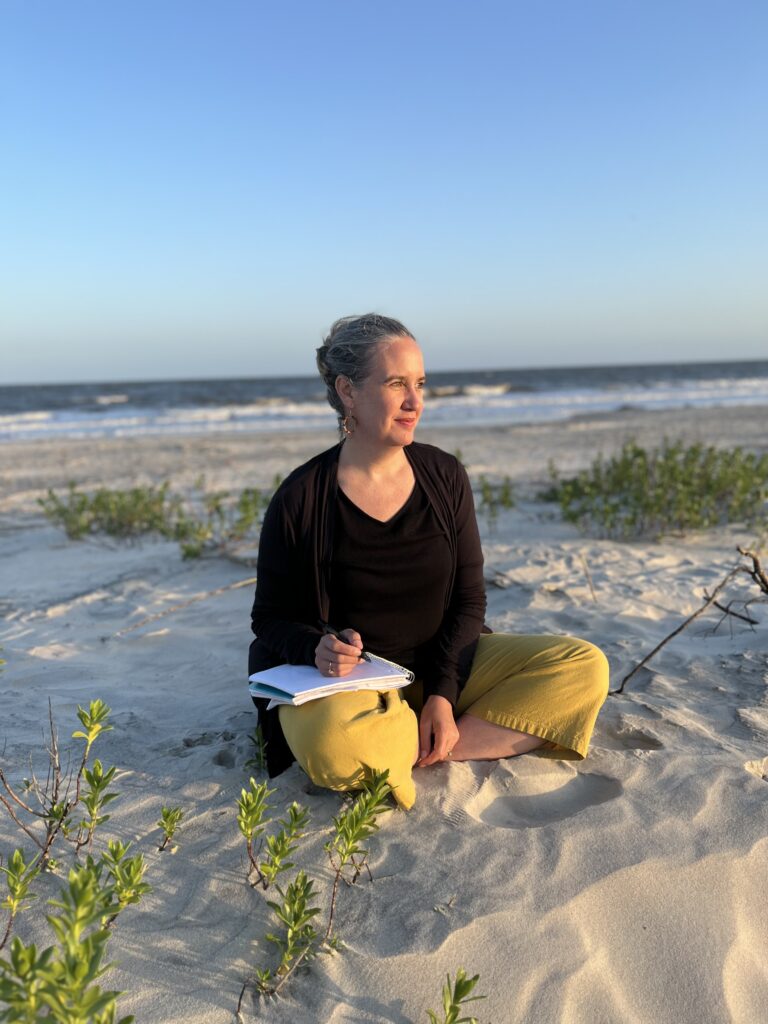Have you ever left a therapy session feeling like you were just starting to open up—like you’d finally hit something important, only to glance at the clock and realize time was up? As a therapist, I’ve witnessed this many times. I help people do deep inner work that takes time to unfold, often more time than we have in a traditional session. That’s what led me to explore something different: Therapy Intensives.
Over the past year, I began offering these extended, deep-dive sessions that last several hours or span multiple days—and the results have been incredible. Clients are shifting long-held patterns, finding clarity, and making powerful, lasting changes—faster than I ever imagined.
In this first post in a series, I’ll share why I’ve fallen in love with therapy intensives—and why this format might be the missing piece in your healing journey too.
What is a Therapy Intensive?
A Therapy Intensive is an accelerated approach to therapy that allows for deeper, more focused inner work. Instead of the typical 50-minute session—where we often have to pause just as we’re getting somewhere—intensives offer a spacious container to stay with what’s unfolding until it feels more complete.
In my practice, I offer 3- and 5-hour therapy intensives for individuals, along with multi-day options. These spacious containers allow for deep healing, trauma processing, and clarity-building—work that often gets squeezed or fragmented in standard-length sessions.
Click here for more about therapy intensives.
What Surprised Me Most About Therapy Intensives
When I first started trying intensives, I really wasn’t sure how it would go. Would so much time together feel awkward? Would clients be exhausted? Would it feel worth it?
But after just a few sessions, I was hooked. What I witnessed in those early intensives—the depth, the momentum, the real and lasting transformation—was so powerful.
I was amazed at how much could shift in a single 3-hour intensive. Clients were making breakthroughs around long-standing issues—things they’d been circling for years. It often felt like we were gathering months of therapy into just one session—and the breakthroughs reflected that. Therapy intensives help clients reconnect with their true self, resolve inner conflicts, and move forward with more clarity and confidence.
Clients say things like:
- “My relationship with this issue has completely shifted.”
- “I feel lighter, clearer, more myself.”
- “That felt like a breakthrough I’ve been waiting years for.”
- “I’m changing lifelong patterns.”

These aren’t just feel-good moments—they’re real, lasting shifts that ripple into relationships, careers, and how clients show up in the world.
The work feels whole. We’re not just scratching the surface or circling something for weeks—we’re healing at the core.
Why It Works (Especially for Highly Sensitive People)
As a sensitive, empathic, and intuitive person myself, I know how much depth lives inside us. And I know it can take time to warm up, feel safe, and drop into the vulnerable places that need healing. Weekly therapy can sometimes feel rushed—or like we’re hitting pause just as we’re getting somewhere meaningful.
With therapy intensives, we don’t have to rush. There’s space to slow down, explore deeply, and be thorough. It’s like a deep cleaning—getting into all the nooks and crannies and tending to what’s hidden. And when those hidden parts are seen and integrated, clients often report feeling lighter, more grounded, and more aligned with their intuition and inner strength.
Many times in weekly sessions, I find myself wrapping up sessions saying things like, “I know there’s more here,” or “Let’s bookmark this for next time.” Not in an intensive. In these longer sessions, there’s a natural sense of completion—a felt experience of resolution and movement. In fact, the sense of completeness at the end tends to be so satisfying.
Is a Therapy Intensive Right for You?
Intensives aren’t for everyone—but for the right person, they can be life-changing.
A therapy intensive might be just what you need if you:
- Have a specific issue, trauma, or stressor that needs more space to unpack
- Feel stuck or like you’re not making the progress you want in hourly therapy
- Want to make a big shift and feel ready to go deeper—now
- Struggle to fit weekly sessions into your schedule
- Feel drawn to immersive, accelerated healing work
Whether you’re navigating trauma, burnout, a major transition, or simply want to reconnect with yourself, therapy intensives offer a focused and accelerated path forward.
Ready to Go Deeper?
If you’re feeling stuck, overwhelmed, or like your healing journey is calling for more space, a therapy intensive could be the missing piece.
The breakthroughs I’ve witnessed in intensives aren’t just fast—they’re deeply felt, embodied, and often long-lasting. If you’re craving a shift, this might be the path forward.
Ready to explore what’s possible with an intensive?
Let’s talk about what you’re longing for and whether this format could support your next big shift. I offer online therapy anywhere in Georgia and in-person therapy in Carrollton, Georgia. Learn more here or book a free consultation—I’d love to connect.








